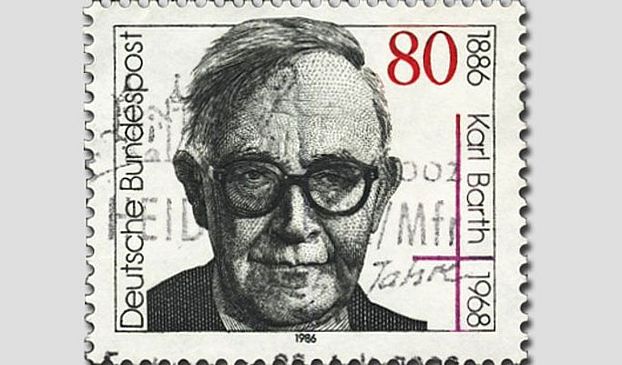/ People
Interview with Jessica DeCou
Jessica DeCou is specialized in the evolving relationship between religion and culture in the modern period and stays as a Visiting Fellow at the Institute for European Global Studies. In this interview, she introduces her research project on “A Fantastic Affair: Karl Barth in America, 1962”.
Welcome to the Institute for European Global Studies, Jessica DeCou! What kind of research project will you pursue during your stay in Basel?
My current research seeks to chronicle Karl Barth’s sole visit to the U.S. (1962). Barth had just retired his position on the theology faculty at the University of Basel when he finally, after decades of urging from all corners, agreed to an “Amerika-reise.” Barth arrived at a tumultuous moment in American history and found himself embroiled in some of the nation’s fiercest conflicts. These seven weeks also took him to tourist attractions in 10 states from coast to coast and North to South. Letters, photographs, and other items at the Karl Barth-Archiv here in Basel have provided some wonderful insights into Barth’s visit, its cultural significance on both sides of the Atlantic, and its lasting impact on those who were there.
Why did you choose this specific topic?
Karl Barth is often described as “the greatest theologian of the 20th century,” and yet there is no published research on his 1962 visit to the U.S., despite its significance at the time. Though Barth was a frequent critic of American culture and politics, his arrival was greeted with a degree of media fanfare unimaginable for a theologian today, and earned him the cover of Time magazine. Announcement of his travel plans brought a flood of requests for lectures, public appearances, personal meetings, television interviews, etc. His lectures at Chicago and Princeton drew thousands of attendees, requiring closed circuit televisions for overflow crowds – and a small entourage was needed to escort him past the throngs of autograph seekers and reporters. Tracing Barth’s personal and professional activities over these seven weeks therefore offers an intriguing lens through which to explore the changing relationship between Christianity and Western culture over the past 50 years.
How does the topic relate to European Global Studies?
The story of Barth’s “Amerika-reise” puts a spotlight on the cultural, political, and religious exchanges between the U.S. and Eastern and Western Europe at the height of the Cold War. Of special interest are Barth’s efforts to mediate cultural/political conflicts within and between Europe and the U.S. in, for example, his meetings with Defense Department staff, members of the Communist Party of the United States (CPUSA), civil rights leaders, White House officials, and a host of others. Touching on such a wide range of issues (foreign policy, intelligence strategy, collective bargaining, interreligious dialogue, communism, civil rights, etc.), the story of Barth’s visit will reveal new perspectives on American-European relations in the Kennedy era and how they have evolved in the decades since.
What are you most excited about regarding your stay in Basel?
From a professional perspective, I was most excited about working in the Karl Barth-Archiv, and this has proven to be an even better experience than I had expected. I’m also very glad to have the chance to meet fellow Barth scholars as well as Barth’s surviving colleagues, family, and friends. From a more personal perspective, as someone who spends her time reading about this famous Basler, it has also been a real treat to finally get to know Basel for myself (I’ve grown particularly fond of the Eichhörnchen in Kannenfeldpark and of the “Drämmli”). I’m very happy to have had the opportunity to spend some of my free-time volunteering at the Tierschutzbund Basel. Of course, I’m also looking forward to Fasnacht and to the Moorgeschtreich in particular – sounds like it will be quite a unique experience!
Thank you for the interview, Mrs. DeCou.

